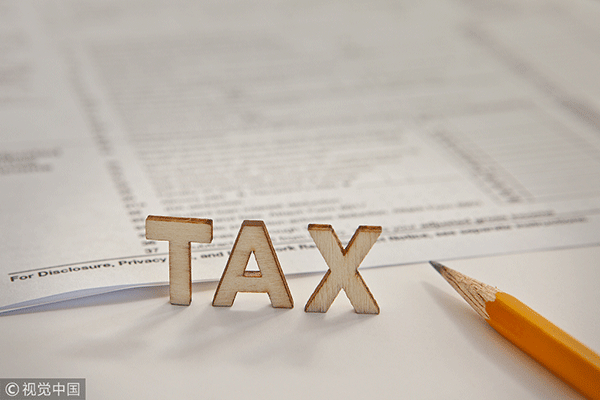Tax collection

[Photo/VCG]
Foreign enterprises in China should pay tax and enjoy preferential tax reduction or exemption in accordance with relevant state tax provisions. Enterprises must set up the accounting books, conduct independent accounting and submit financial reports under the supervision of the financial and tax authorities.
Tax registration
In accordance with the requirements of the law on tax collection and administration, taxpayers engaged in production or business operations in China and other taxpayers shall register with tax authorities as required.
Procedures to applying for tax registration:
1) the taxpayer engaged in production or business operations shall apply for tax registration to the tax management authorities where they operate or pay tax within 30 days from the date of their business license;
2) The tax authority shall audit and issue a tax registration certificate within 30 days from the date of receiving the declaration. For foreign-invested enterprises, foreign enterprises and foreign enterprises branches, the tax authority shall issue the certificate of tax registration of foreign-funded enterprise and a copy, the certificate of tax registration of foreign enterprises and a copy, and the certificate of tax registration of branches of enterprises with foreign investment and copies.
The ways of tax collection
Chinese tax authorities use the following ways to collect tax according to the different characteristics of various types of taxes and the specific conditions of both sides:
1) Tax auditing collection. This approach generally applies to the tax units with relatively sound financial and accounting systems able to earnestly fulfill their obligations to pay taxes;
2) Examination-based collection. This approach generally applies to tax units without perfect accounting books, but having control of raw materials or export sales;
3) Inspection-based collection. This approach generally applies to single operation tax units without a fixed business place source of goods or time of receiving them;
(4) Regularly fixed amounting collection. This approach applies to small tax units without complete assessment;
(5) Tax collecting entrust. This approach applies to small and scattered tax levies;
(6) Pay tax by mail. This approach mainly applies for those taxpayers who have the ability to pay taxes on schedule, but find using other methods inconvenient;
(7) other ways, such as using the Internet to declare and pay tax with IC card, and similar methods.
Tax Extension
According to Chinese law, a taxpayer with special difficulties who cannot pay taxes on schedule, with approval by the state tax bureau or local taxation bureaus of provinces, autonomous regions or municipalities directly under the central government, can delay paying tax, but the longest term must not exceed 3 months.
Special difficulties refer to: 1) force majeure causing a large loss for taxpayers whose normal production and business operation activities are affected in a major way; 2) the current monetary fund is not enough to pay taxes after deducting worker wages and social insurance premiums.
*According to Chinese law, the taxpayer and his legal representative who denies tax liability shall settle all taxes payable or provide guarantees to the tax authority before exiting the country. For those taxpayers who do not pay taxes completely and do not provide guarantees, the taxation authority can notify the exit administrative authority to stop their exits.
Invest in China Copyright © 2026 China Daily All rights Reserved
京ICP备13028878号-6
 京公网安备 11010502032503号
京公网安备 11010502032503号





